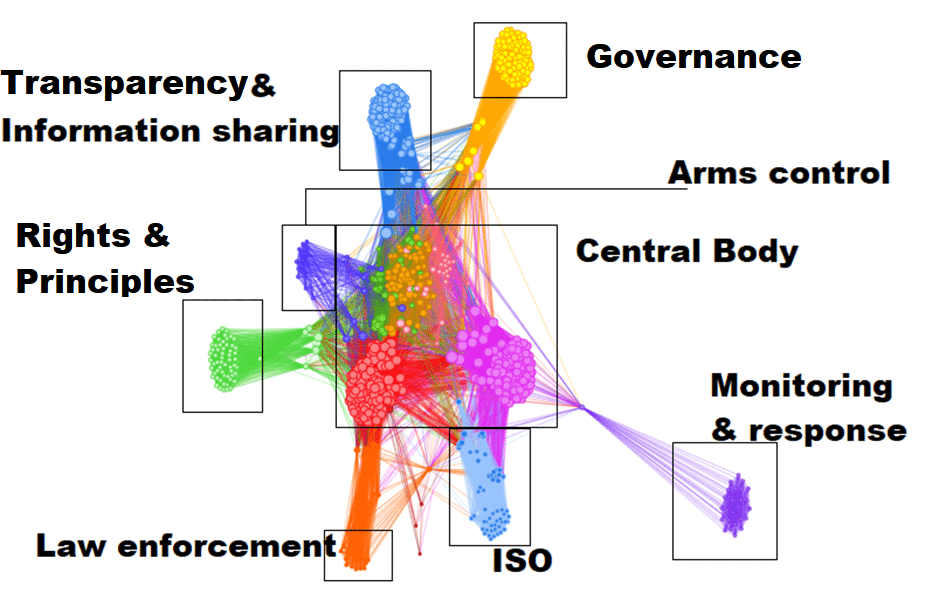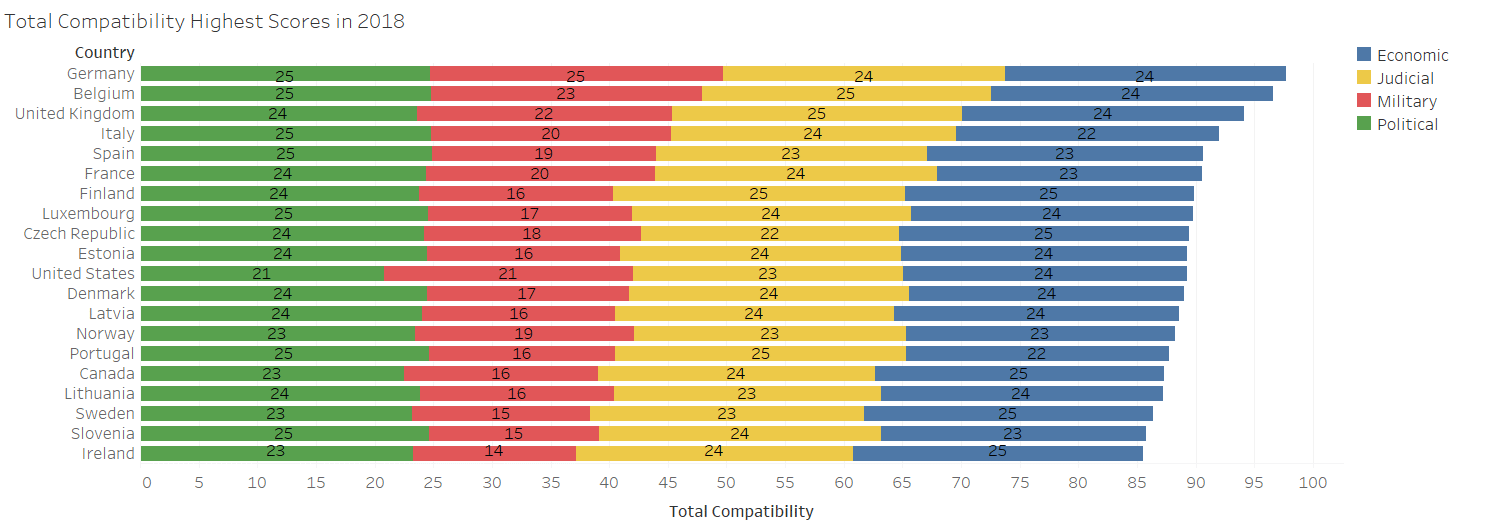The Datalab is HCSS’ in-house evidence- and knowledge-base that is increasingly becoming the foundation on which we build our geostrategic analyses. Until fairly recently, the fields of foreign, security, and defense policy (FSDP) analysis had few other options but to rely on mostly qualitative expert analysis and opinion. HCSS has, from its very inception in 2007, pushed for complementing this deep – but often partial – human expertise with more systematic – and multi-perspectivist – machine-based and data-driven analysis.
The HCSS Datalab’s StratBase leverages a wide array of over 11,000 variables from various open and proprietary datasets. Many of these datasets are of a numerical origin (e.g. economic, financial, military, values, etc. country-year datasets), but increasingly they are also extracted from text- and even image/video- or audio-based – sources. We process all of these datasets with the latest data-driven algorithms and analytical frameworks to map and track global geodynamics, conflict lifecycles, political and security risks both offline as well as in cyberspace, great-power assertiveness, the behavior of pivot-states, access to natural resources, changing insights about the future, and many other phenomena that are of key importance to international interactions.
Example of our recent work:
Political violence forecasting and early warning algorithms
Through a combination of machine learning methods and advanced text mining we forecast the odds of political violence globally on a state/province level.
The geostrategic analyses that we base on our HCSS Datalab are targeted at multiple time-horizons. Our nowcasting-work sets out to provide decision-makers with a more systematic and actionable ability to monitor what is actually going on in the world right now – an ability that unfortunately remain sorely lacking. Our forecasting work uses the latest breakthroughs in machine-learning to extrapolate reliable and interpretable trends out of these richer historical and contemporary data within what we consider to be the current predictability horizon (up to one year ahead). Finally our foresight work tries to map the bandwidth of views on various possible elements of the future (futuribles) as they emerge from a variety of different foresight studies in multiple languages and fields of study.
Example of our recent work:
A holistic dashboard for Dutch agrifood interests
In close collaboration with the client we developed a one stop dashboard that can inform decision makers on all relevant components of Dutch agrifood across the globe.
We provide early warning solutions, and improve situational awareness and understanding of the subject matter for a wide range of civil society, industry, and government clients. Apart from accurate predictions, we also provide our clients with high quality interpretations of conflict-related phenomena. Our output enables our clients to mitigate political and security risks to which their policies, investments, or ventures might be exposed. Specifically, we enable our clients to completely appreciate social and demographic conditions of conflict lifecycles, economic mechanisms that drive such lifecycles, and political triggers that initiate them, all of which might jeopardize our clients’ efforts, if left out of consideration.
Example of our recent work:
Regime complex mapping and fragmentation in cyberspace
Developed with the support of the Global Commission on the Stability of Cyberspace (GCSC), this monitor makes use of text mining and network analysis to visualize policy clusters and identify possible synergies and gaps.
Our core competencies range from text and data mining, to index building, to predictive and causal risk modelling, to optimizing strategies and policies, to designing comprehensive dashboards. We collect, synthesize, and curate our data for quality. We rely on structural and automated event data. In order to develop tailor-made solutions, and visualize our output in intuitive, customized, web-based interfaces in real time, we also compile, collate, and index our own datasets.
Example of our recent work:
The quantitative measurement of Dutch foreign relations
Based on a conceptual framework measuring both Dutch interests abroad and Dutch values, we create a comprehensive data driven model that identifies critical allies and potential rivals to the Netherlands.
For additional info, please contact:
Stephan De Spiegeleire, Principal Scientist
Tim Sweijs, Research Director
Ninoslav Malekovic, Chief Data Scientist
Paul Verhagen, Data Scientist













